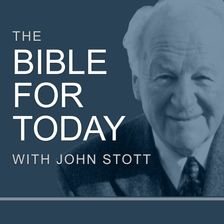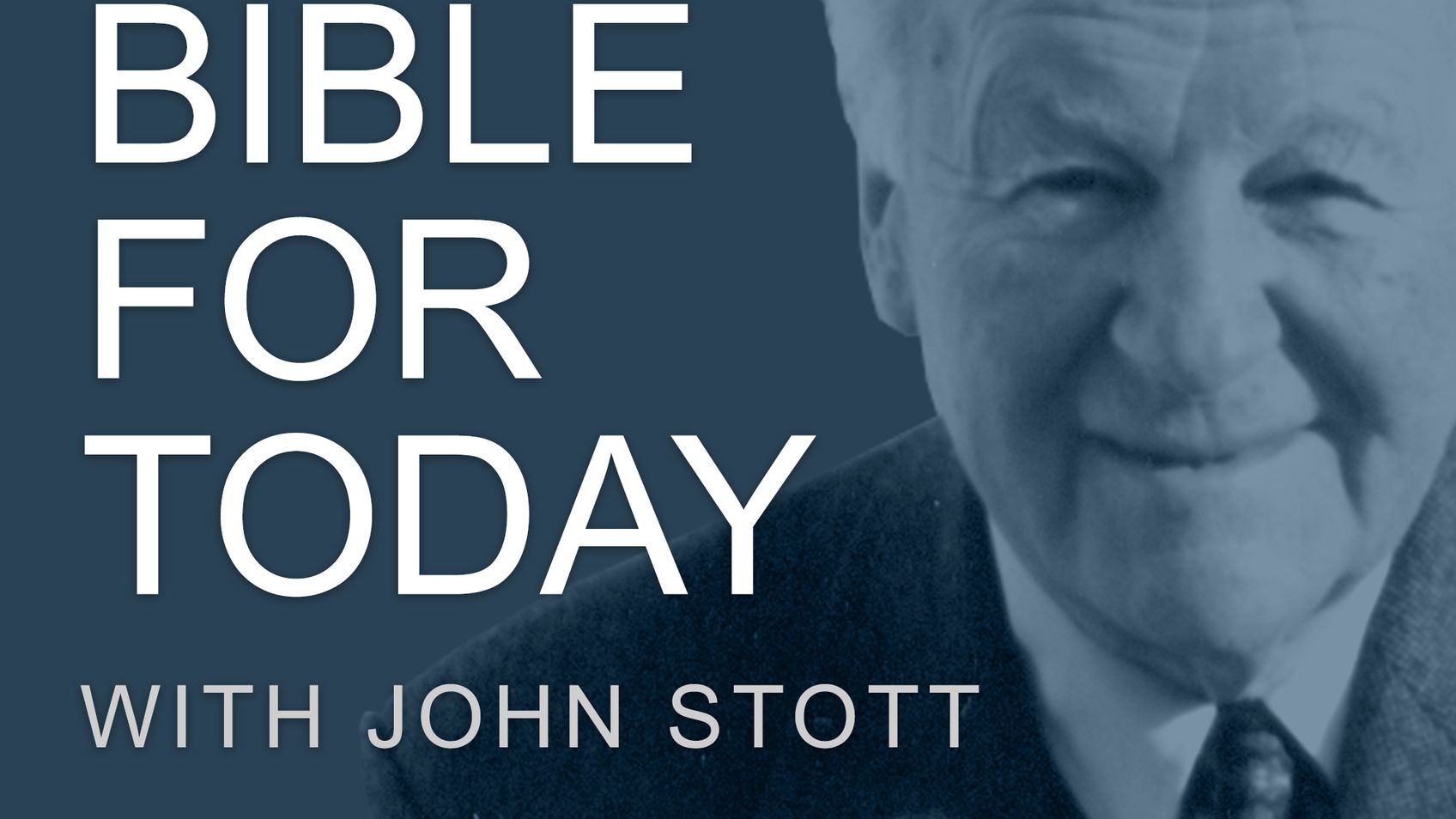A Charge to Church Elders - Part 2
January 28, 2021

The Bible for Today with John Stottwebteam
John Stott uses the example of the apostle Paul to show how church leadership should be done according to Scripture.
More From The Bible for Today with John Stott

The Status of Sons - Part 1
The Bible for Today with John Stott
January 31, 2021
John Stott explains what is involved in being a child of God and living as God's children in the world with God as our Father.

The Status of Sons - Part 2
The Bible for Today with John Stott
February 7, 2021
John Stott shows us that for us to be sons of God we must be united to Him by faith in Jesus Christ, making us God's children by adoption.

God's New Society - Part 1
The Bible for Today with John Stott
February 14, 2021
John Stott explains why we can feel a sense of meaninglessness and lostness in the world

A Charge to Church Elders - Part 1
The Bible for Today with John Stott
January 28, 2021
Whilst the leadership within each church may vary, John Stott uncovers the blueprint for church leadership that is laid out in Scripture.

Introduction to Genesis - Part 2
The Bible for Today with John Stott
January 28, 2021
John Stott shows how Genesis is 'God Breathed' and must be regarded primarily as a book of salvation and not of science.

Introduction to Genesis - Part 1
The Bible for Today with John Stott
January 27, 2021
John Stott explains why we must have the firm foundation of Genesis in place if we are ever to build our understanding of Scripture.
More on OpenTheo

Does God Hear the Prayers of Non-Believers?
#STRask
February 26, 2026
Questions about whether or not God hears and answers the prayers of non-believers, and thoughts about a church sign that reads (as if from God), “Just

How Do You Justify Calling Jesus the Messiah?
#STRask
December 18, 2025
Questions about how one can justify calling Jesus the Messiah when he didn’t fulfill the Hebrew messianic prophecies, and whether the reason for the v

Can You Recommend Good Books with More In-Depth Information and Ideas?
#STRask
January 22, 2026
Questions about good books on Christian apologetics, philosophy, and theology with more in-depth information and ideas, and resources to help an intel

Why Does the Bible Teach You How to Be a Proper Slave Owner?
#STRask
November 13, 2025
Question about why it seems like the Bible teaches you how to be a proper slave owner rather than than saying, “Stop it. Give them freedom.”
* It s

What Tools of Reasoning Help You Know What’s True, Right, and Good?
#STRask
December 4, 2025
Question about what tools of reasoning help us determine whether something is true or false, right or wrong, good or bad before bringing Scripture int

What Do You Think About Churches Advertising on Social Media?
#STRask
January 19, 2026
Questions about whether there’s an issue with churches advertising on social media, whether it’s weird if we pray along with a YouTuber, and whether C

How Should I Respond to an LGBTQ Person Who Says He Feels Good About Who He Is?
#STRask
March 2, 2026
Questions about responding to an LGBTQ person who says he feels good about who he is, and whether—since we all have sin in our life we don’t consider

Christmas Cranks and Christmas Blessings with Justin Taylor and Collin Hansen
Life and Books and Everything
December 17, 2025
If you are looking for a podcast where three friends talk about whatever they want to talk about and ramble on about sports, books, and grievances, th

Why Would Any Rational Person Have to Use Any Religious Book?
#STRask
December 8, 2025
Questions about why any rational person would have to use any religious book, whether apologetics would be redundant if there were actually a good, un

Protestants and Catholics: What’s the Difference? With Chad Van Dixhoorn, Blair Smith, and Mark McDowell
Life and Books and Everything
November 26, 2025
How should Protestants think about the Catholic Mass? About the Eucharist? About the history and development of the papacy? In this panel discussion,

What Is the Role of the Holy Spirit in Our Lives if He Doesn’t Give Us Instructions?
#STRask
February 23, 2026
Questions about the role of the Holy Spirit in our lives, advice for someone who believes in God intellectually but struggles to understand how to hav

How Can We Know Who Is Teaching the Same Gospel Paul Taught?
#STRask
February 16, 2026
Questions about how we can know who is teaching the same gospel Paul taught, and whether or not Jeremiah 1:5 supports the idea that we pre-existed in

When I Can’t Stop Thinking About Something, Is That God Speaking?
#STRask
December 1, 2025
Questions about whether having a recurring thought is an indication God is speaking to you, what to say to someone who says they sinned because “God t

Is It a Sin to Feel Let Down by God?
#STRask
November 6, 2025
Questions about whether it’s a sin to feel let down by God and whether it would be easier to have a personal relationship with a rock than with a God

Why Are So Many Christians Condemning LGB People Just Because of How They Love?
#STRask
January 15, 2026
Questions about Christians condemning LGB people just because of how they love, how God can expect someone to be celibate when others are free to marr
